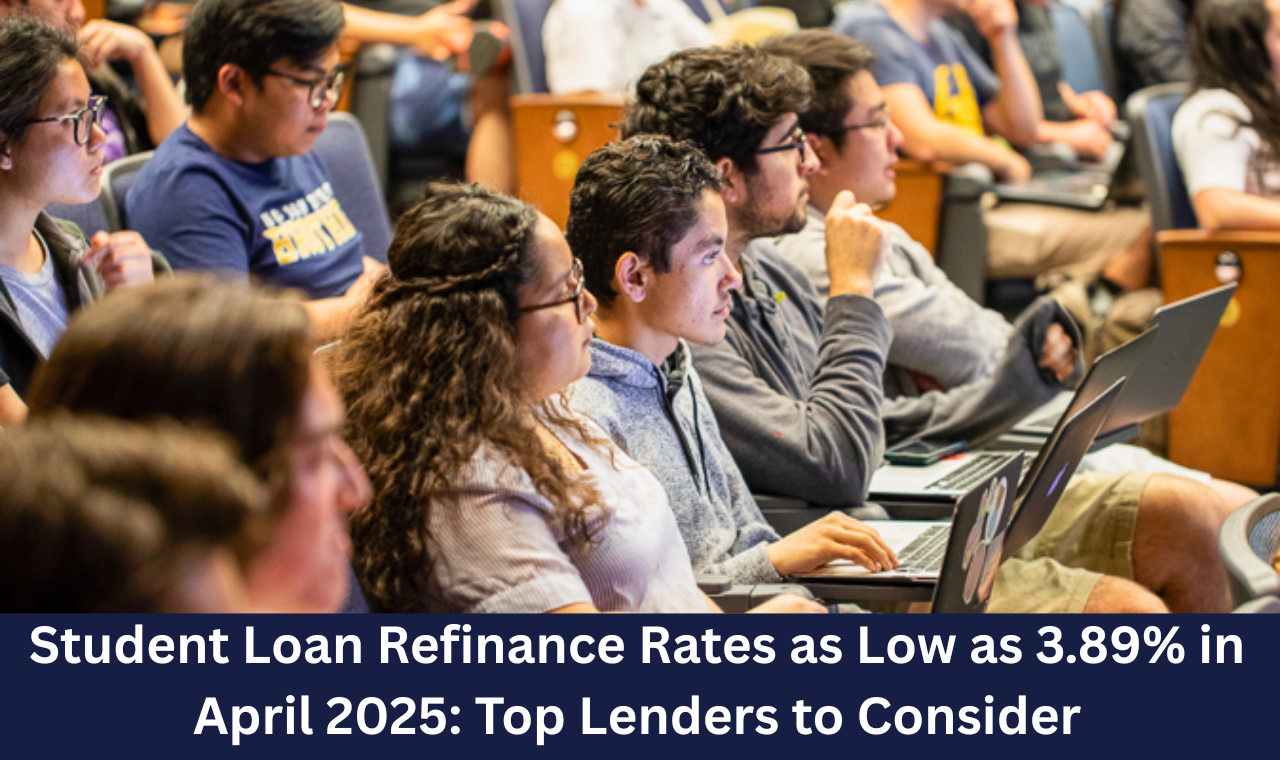As of April 2025, borrowers seeking to refinance their student loans can take advantage of some of the lowest rates available in recent years, with rates starting as low as 3.89% APR. This is welcome news for graduates burdened by high-interest loans, as refinancing offers a potential path to lower monthly payments and reduced overall debt.
The Opportunity for Refinancing
Student loan refinancing allows borrowers to consolidate their federal or private loans into a new private loan, ideally at a lower interest rate. This can result in reduced monthly payments or a shorter loan term. However, while the allure of lower rates is strong, refinancing comes with important considerations, particularly for those with federal loans.
For many borrowers, federal student loans offer protections such as income-driven repayment plans and the potential for loan forgiveness, which are lost when refinancing into a private loan. As such, refinancing is typically most beneficial for borrowers with stable incomes, solid credit scores, and no intention of pursuing loan forgiveness.
The Best Student Loan Refinance Lenders of April 2025
For borrowers considering refinancing, here are some of the top lenders in the market offering competitive rates as low as 3.89% APR in April 2025:
- Splash Financial : Splash Financial offers some of the most competitive refinance rates in the industry. Borrowers with strong credit can access rates starting as low as 3.85% APR on variable-rate loans with autopay. They offer both fixed and variable-rate options, making them a solid choice for borrowers looking to adjust their loan terms to better suit their financial situation. Learn more on Splash Financial’s official website: Splash Financial.
- Laurel Road : Laurel Road, a leader in student loan refinancing, provides rates beginning at 3.89% APR. The lender is known for offering a range of terms and repayment options, making it a flexible choice for borrowers with varying needs. Laurel Road is particularly attractive to healthcare professionals, as they offer specialized refinancing options for those in the medical field. Visit Laurel Road’s official site for more details: Laurel Road.
- ELFI (Education Loan Finance) : ELFI provides refinancing options with rates starting at 3.99% APR. The lender offers both fixed and variable-rate loans and allows borrowers to select repayment terms between 5 and 20 years. ELFI is notable for its straightforward application process and competitive rates, making it a solid option for borrowers looking to refinance large amounts of student debt. For more information, check out ELFI’s website: ELFI.
- Earnest : Earnest offers personalized refinancing options, with rates starting at 4.00% APR. Known for its flexibility, Earnest allows borrowers to choose their monthly payment amounts, making it ideal for those who want control over their repayment plans. Earnest also offers a wide range of loan terms and caters to borrowers with a variety of financial backgrounds. Learn more about Earnest at Earnest.
- SoFi : SoFi, one of the most recognizable names in student loan refinancing, offers rates starting at 4.25% APR. SoFi provides a wide range of benefits to borrowers, including career coaching, financial planning, and unemployment protection. These added benefits make SoFi a compelling choice for borrowers seeking not only competitive rates but also additional services to support their financial well-being. Visit SoFi’s official site here: SoFi.

Key Considerations Before Refinancing
While refinancing offers the potential for lower rates and better terms, it’s important to consider the following factors:
- Federal Loan Protections: Refinancing federal loans with a private lender means losing access to federal protections, including income-driven repayment plans and eligibility for federal loan forgiveness programs. Borrowers who are seeking Public Service Loan Forgiveness (PSLF) or other federal assistance programs should carefully weigh the decision to refinance. For more information on federal student loan protections, visit the U.S. Department of Education.
- Credit Score and Eligibility: The best refinancing rates are typically available to borrowers with excellent credit scores. Those with lower credit scores may not qualify for the lowest rates or may need a co-signer to qualify. It’s important to check your credit score and understand the eligibility requirements of the lender before applying.
- Loan Terms: Refinancing allows borrowers to choose between fixed or variable interest rates, as well as different loan terms. Longer loan terms may reduce monthly payments, but they also increase the total amount of interest paid over the life of the loan. Borrowers should consider their financial situation and long-term goals when selecting loan terms.
What You Need to Do Before Refinancing
Before proceeding with student loan refinancing, borrowers should take the following steps:
- Compare Multiple Offers: Borrowers should use online platforms like Credible and Bankrate to compare rates and terms from multiple lenders. This ensures that you find the best deal that matches your financial situation.
- Review Eligibility Requirements: Check each lender’s eligibility criteria, which typically include a minimum credit score and income. Some lenders may also have additional requirements, such as being employed or having graduated from an accredited institution.
- Understand the Terms: Before accepting a refinancing offer, carefully read the terms and conditions. Look for any fees, prepayment penalties, and other hidden charges that could affect your loan repayment.
- Know Your Federal Loan Rights: If you have federal student loans, it’s crucial to understand the protections you’re giving up by refinancing. Be sure you’re comfortable with the loss of these protections before you make a decision.
Final Thoughts
Refinancing student loans can be a powerful tool for saving money on interest and lowering monthly payments, but it’s not right for everyone. Borrowers should carefully consider their financial goals, their eligibility for federal protections, and their ability to meet new repayment terms before moving forward with refinancing.
With rates as low as 3.89% APR available, now is an opportune time for qualified borrowers to explore refinancing options. Be sure to research all options, compare offers, and understand the long-term impact of refinancing before making a final decision.

Pankaj Kumar is a skilled content writer at OTE News, focusing on breaking news, technology, and socio-political developments. With a background in Mass Communication, he brings a balanced perspective to his articles, ensuring clarity and reliability. Pankaj has a knack for simplifying complex topics for readers.
In his free time, he enjoys photography, traveling, and experimenting with new cuisines. His curiosity and dedication to truthful reporting make him a valuable contributor to OTE News.




